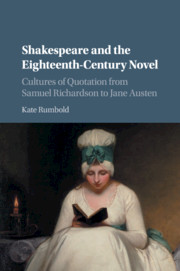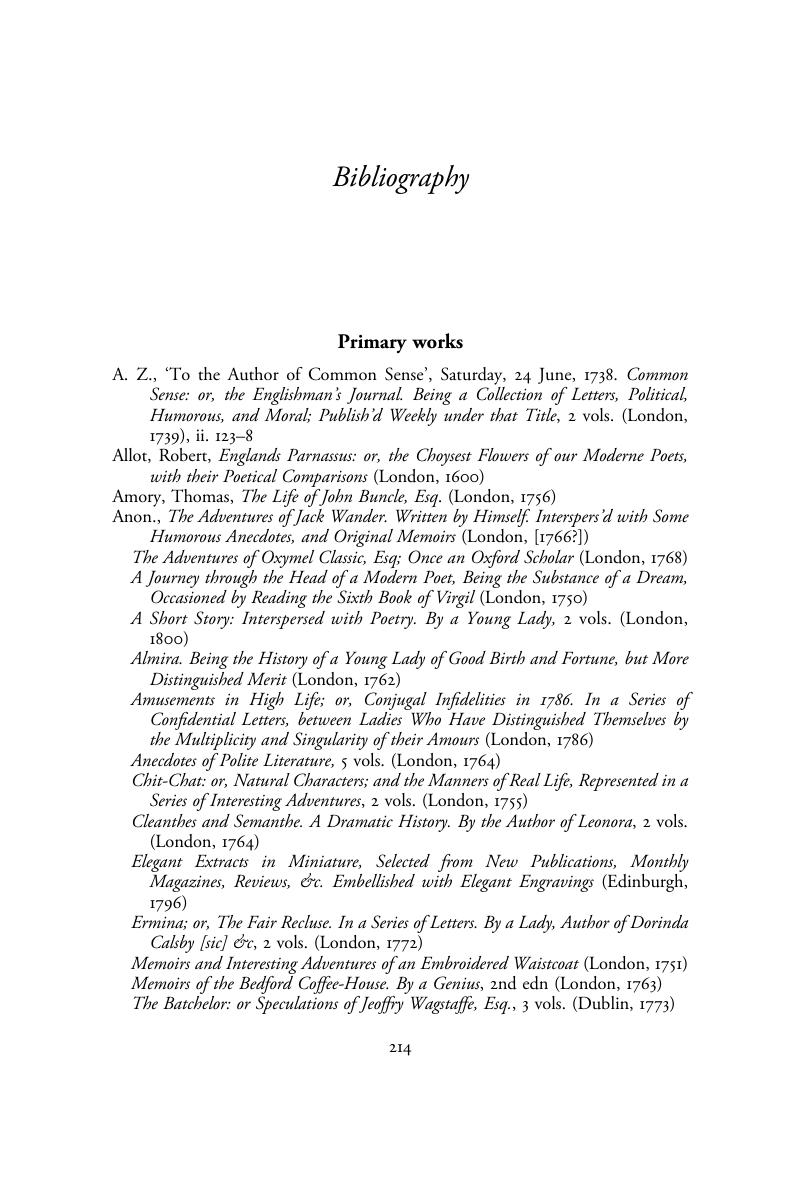 Shakespeare and the Eighteenth-Century Novel
Shakespeare and the Eighteenth-Century Novel Book contents
- Half title page
- Title page
- Copyright page
- Dedication
- Contents
- List of illustrations
- Book part
- Chapter 1 Introduction
- Chapter 2 Quotation culture
- Chapter 3 Shakespeare’s novel authority
- Chapter 4 Theatrical Shakespeare
- Chapter 5 Banal Shakespeare
- Chapter 6 Ann Radcliffe’s Gothic epigraphs
- Chapter 7 Jane Austen and eighteenth-century Shakespeare
- Chapter 8 Conclusions
- Notes
- Bibliography
- Index
- References
Bibliography
Published online by Cambridge University Press: 05 March 2016
- Half title page
- Title page
- Copyright page
- Dedication
- Contents
- List of illustrations
- Book part
- Chapter 1 Introduction
- Chapter 2 Quotation culture
- Chapter 3 Shakespeare’s novel authority
- Chapter 4 Theatrical Shakespeare
- Chapter 5 Banal Shakespeare
- Chapter 6 Ann Radcliffe’s Gothic epigraphs
- Chapter 7 Jane Austen and eighteenth-century Shakespeare
- Chapter 8 Conclusions
- Notes
- Bibliography
- Index
- References
Summary

- Type
- Chapter
- Information
- Shakespeare and the Eighteenth-Century NovelCultures of Quotation from Samuel Richardson to Jane Austen, pp. 214 - 237Publisher: Cambridge University PressPrint publication year: 2016
